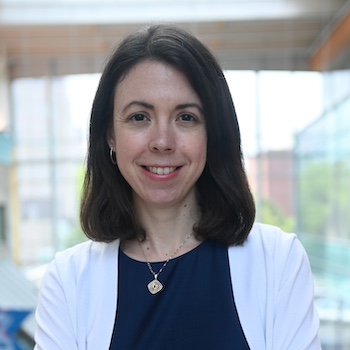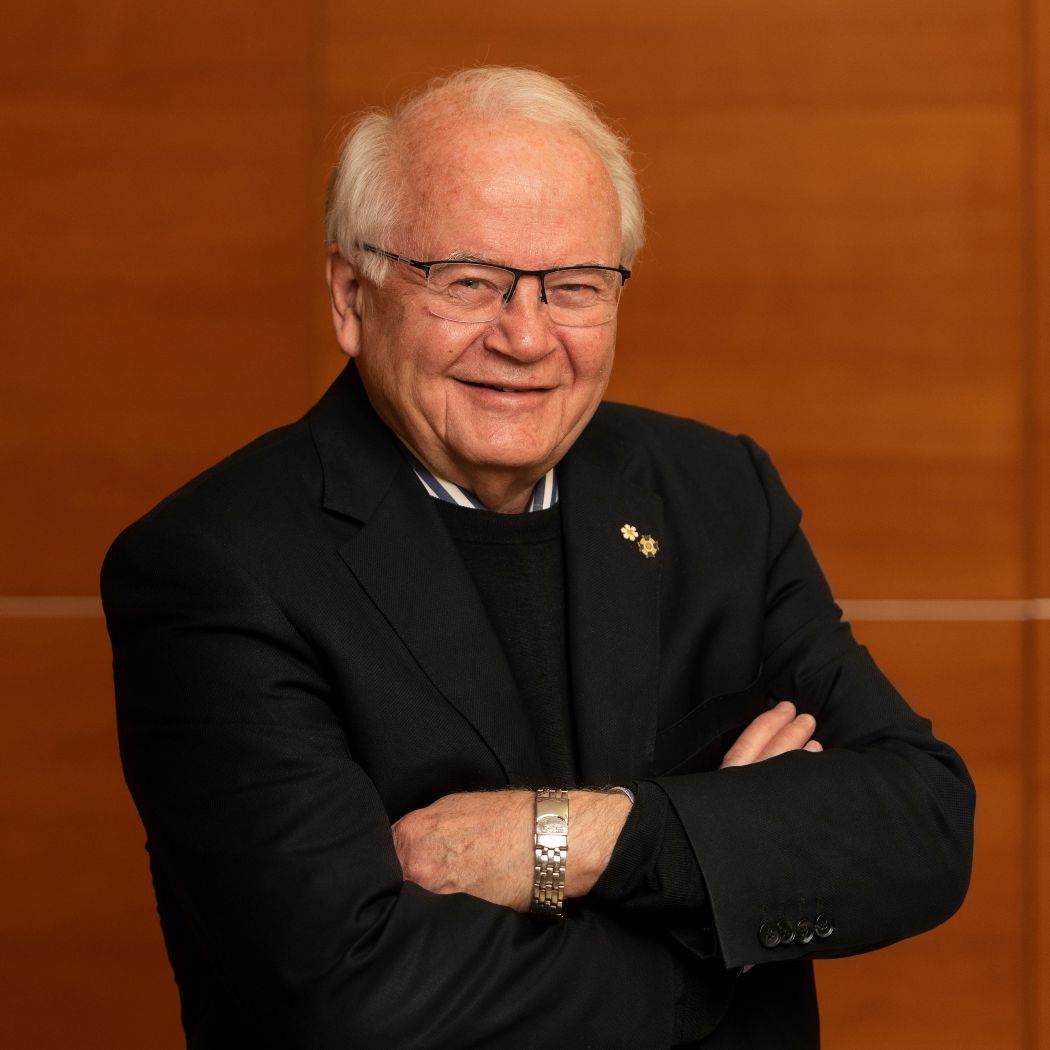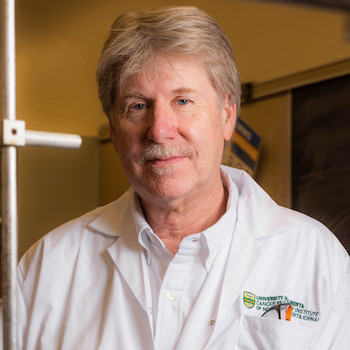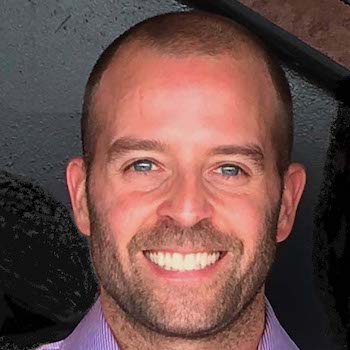Team
Director
 Matthias Götte, PhD
Matthias Götte, PhD
Professor, Department of Medical Microbiology and Immunology, University of Alberta.
Research in Götte’s lab is focused on structure, function and inhibition of viral polymerases. Emphasis is placed on drug discovery, development and resistance related to viruses with high epidemic potential. Early in the pandemic, his team elucidated the mechanism of action of remdesivir that became later the first approved antiviral drug for the treatment of COVID-19.
ASSOCIATE directors
D. Lorne Tyrrell, MD, PhD
Distinguished Professor, University of Alberta Director, Li Ka Shing Institute of Virology GlaxoSmithKline Chair in Virology
Research in Tyrrell lab has focused on developing model systems and therapeutics for the hepatitis B virus HBV) and hepatitis C virus (HCV). Currently, his research is looking into virus/host immune evasion mechanisms in a number of viruses. With the onset of the pandemic, the Tyrrell lab pivoted to projects focusing on detecting SARS-CoV-2 and the development of antiviral drugs and vaccines that target SARS-Co-V2. His research continues to investigate mechanisms that enable variants to become prevalent in the general population.
Frederick West, PhD
Professor in the Department of Chemistry, Adjunct Professor of Oncology and Allard Research Chair in Oncology
The West group uses the tools of chemical synthesis to address problems in human health through the design and synthesis of novel probe molecules and therapeutic compounds focusing on cancer and infectious disease. This work involves close collaborations with groups working in virology, biochemistry, and structural biology. Projects that are especially pertinent to the objectives of SPP-ARC include allosteric inhibitors of RdRP proteins of RNA viruses (e.g., RSV, Zika, SARS-CoV-2), molecules interfering with primary viral host cell attachment mechanisms, and mechanistically novel inhibitors of the influenza polymerase.
Members
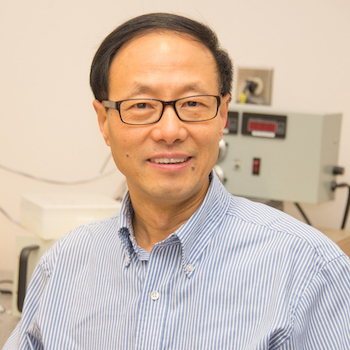 Chris Le, PhD is a Distinguished Professor and Director of the Analytical and Environmental Toxicology Division in the Department of Laboratory Medicine and Pathology. His research program includes “point-of-care diagnostics of COVID-19”, “detection of DNA damage and mutations” and “arsenic exposure and health effects”. His team integrates affinity interaction, isothermal amplification and CRISPR technology, resulting in improved analytical sensitivity and specificity. The new techniques enable highly sensitive and specific detection of SARS-CoV-2 in a variety of clinical and environmental samples.
Chris Le, PhD is a Distinguished Professor and Director of the Analytical and Environmental Toxicology Division in the Department of Laboratory Medicine and Pathology. His research program includes “point-of-care diagnostics of COVID-19”, “detection of DNA damage and mutations” and “arsenic exposure and health effects”. His team integrates affinity interaction, isothermal amplification and CRISPR technology, resulting in improved analytical sensitivity and specificity. The new techniques enable highly sensitive and specific detection of SARS-CoV-2 in a variety of clinical and environmental samples.
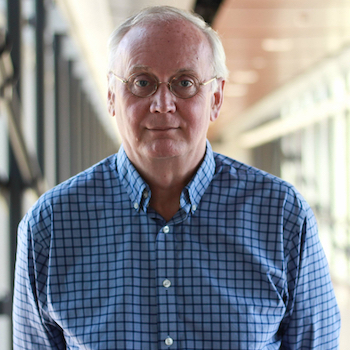
David Evans, PhD is a virologist with expertise in poxvirus recombination, antiviral drugs and replication. More recently his research has concerned oncolytic virus development and methods for assembling synthetic vaccines.

David Marchant, PhD is a Professor in the Department of Medical Microbiology and Immunology at the University of Alberta. He is also a Canada Research Chair in Viral Pathogenesis. He is the founder and CSO of Antibiddies Technologies Inc., which is developing a drug called RespVirex into a preventative antiviral nasal spray that can be easily given to infants and adults. The drugs being developed by his company are derived from his research program at the University of Alberta that studies respiratory viruses like SARS-CoV-2 and Respiratory Syncytial Virus (RSV).

Graham Tipples, PhD, FCCM, D(ABMM) is the Medical-Scientific Director of the Provincial Laboratory for Public Health in Alberta. His responsibilities have included leading the laboratory response to COVID-19 in Alberta including diagnostics, surveillance and applied research. He was previously with the National Microbiology Laboratory, Public Health Agency of Canada for 16 years and was involved in numerous responses to emerging diseases including SARS and pandemic H1N1. Dr. Tipples has a PhD in medical microbiology and is certified as a clinical microbiologist.
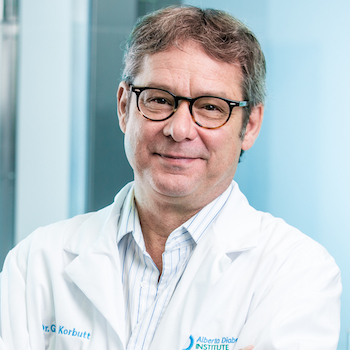
Greg Korbutt, PhD is the Scientific Director of the Alberta Cell Therapy Manufacturing Facility. The main objective of his research is to develop a more accessible source of insulin- producing tissue for transplantation into patients with type 1 diabetes. To address the shortage problem, Dr. Korbutt’s research group has taken the approach of using neonatal porcine islets as a potential source of islets for clinical transplantation. His lab is also focusing on transplanting insulin producing cells without the need for using toxic antirejection drugs.

Holger Wille, PhD is a Professor at the University of Alberta in the Department of Biochemistry and the interim Director for the Centre for Prions and Protein Folding Diseases. His research focuses on misfolded proteins that cause neurodegenerative diseases such as Alzheimer’s and Parkinson’s disease, as well as the prion diseases that afflict humans, livestock and free-ranging wildlife. His research is centered on the molecular structures of the underlying, disease-causing proteins and how to translate this knowledge into prophylactic vaccines and therapies.
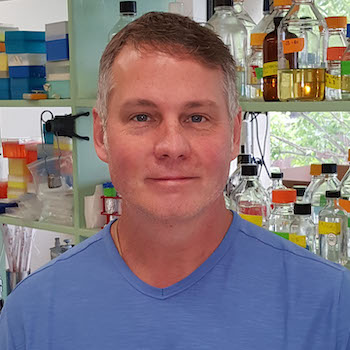
Howard S. Young, PhD is a Professor at the University of Alberta in the Department of Biochemistry. His research is focused on disorders of membrane transport, covering a broad range of pathologies including heart disease and muscle wasting diseases. He is also an expert in structural biology, with an emphasis on determining protein function using X-ray crystallography and cryogenic electron microscopy (cryoEM). His team has helped solve the structures of 14 antiviral derivatives bound to the SARS-CoV-2 main protease, the first of which is currently being developed for human clinical trials.
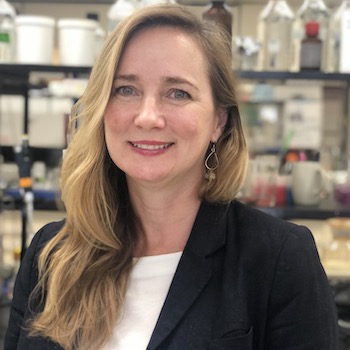
Joanne Lemieux, PhD is a Professor in the Department of Biochemistry. Trained as a structural biologist, she has made important contributions to understanding protein structure and function. With a diverse research portfolio, her main interests lie in the study of proteases. She is currently working towards the development of antivirals targeting the SARS-CoV-2 main protease, including variants of concern, and viral proteases.

John Klassen, PhD is a Professor in the Department of Chemistry. Dr. Klassen has led efforts in developing electrospray ionization mass spectrometry for the detection and quantification of protein-ligand interactions. Recent efforts have focused on the development of mass spectrometry-based shotgun glycomics, a high-throughput technique capable of screening natural libraries of glycans extracted from tissue or cells for the discovery of protein-glycan interactions relevant to human health and disease.

John Vederas, PhD, FRSC, FRS is a Distinguished Professor in the Department of Chemistry at the University of Alberta. His group does research in medicinal chemistry and on natural product biosynthesis. Work on development of antiviral agents has included blocking replication of SARS-CoV-1 and more recently SARS-CoV-2, with inhibitors of the viral protease enzymes that generate building blocks for these infectious agents.
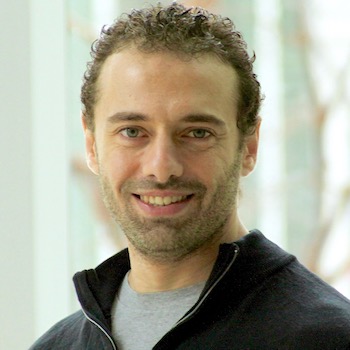
Wael Elhenawy, PhD obtained his PhD in Microbiology & Biotechnology at the University of Alberta under the supervision of Dr. Mario Feldman. He then joined the laboratory of Dr. Brian Coombes at McMaster University where he investigated the role of Escherichia coli in driving Crohn's Disease. In 2021, Dr. Wael Elhenawy joined the Department of Medical Microbiology & Immunology as an assistant professor. The Elhenawy group employs biochemical approaches and high-throughput screening to identify novel antimicrobials that can eliminate multi-drug resistant pathogens.
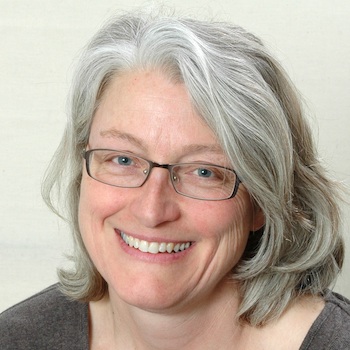
Katharine Magor, PhD is a Professor in Biological Sciences at the University of Alberta. Magor is interested in immune responses to influenza A viruses, especially H5N1 or avian flu. Recent work explores regulation and interferon signaling by RIG-I like receptors, and the interactions of influenza viral proteins to antagonize this pathway. Her interests include development of novel therapeutics to intervene in host-pathogen interactions, and vaccines for human and agricultural use.
Olivier Julien, PhD is an Associate Professor in the Department of Biochemistry, and Associate Director of the Alberta Proteomics and Mass spectrometry facility at the University of Alberta. In collaboration with other SPP-ARC members, his laboratoryfocuses on using mass spectrometry methods for characterizing the role of post-translational modifications (proteolysis, ubiquitination, phosphorylation, etc.) in regulating cellular functions, such as host-pathogens interactions during viral and bacterial infections.
Edan Foley, PhD is a professor in the Department of Medical Microbiology and Immunology. Her group studies the cellular mechanisms that protect from infection at mucosal sites. She is particularly interested in developing probiotic therapies that mitigate or prevent infectious disease.
Kalyan Das, PhD joined the Department of Medical Microbiology and Immunology, University of Alberta as a professor and Canada Excellence Research Chair (CERC). His research focuses on the fundamental understanding of molecular machines in pathogens, identifying novel target sites, understanding mechanisms of drug resistance, and utilizing this information in designing new drug candidates. He is helping to build a structure-based drug design platform using the cryogenic electron microscopy (cryo-EM) technique and will work with interdisciplinary teams to develop antivirals and vaccine candidates. He has been working on developing antivirals targeting the replication machinery of viruses such as HIV, hepatitis, Influenza, dengue, and SARS-CoV-2.
 Dennis Hall, PhD is a Professor in the Department of Chemistry and Tier-1 Canada Research Chair in Boron Chemistry for Catalysis and Drug Discovery. The unifying theme of his interdisciplinary research program is the development of new synthetic and biological applications of organoboron compounds. Ongoing medicinal chemistry efforts focus on the discovery of novel drug isosteres and chemotypes for the development of anti-infective agents, including SARS-Cov-2 and influenza antiviral inhibitors.
Dennis Hall, PhD is a Professor in the Department of Chemistry and Tier-1 Canada Research Chair in Boron Chemistry for Catalysis and Drug Discovery. The unifying theme of his interdisciplinary research program is the development of new synthetic and biological applications of organoboron compounds. Ongoing medicinal chemistry efforts focus on the discovery of novel drug isosteres and chemotypes for the development of anti-infective agents, including SARS-Cov-2 and influenza antiviral inhibitors. Kevin Kane, PhD is a Professor in the Department of Medical Microbiology and Immunology at the University of Alberta. He is an expert in cytolytic cells of the innate and adaptive immune system, natural killer (NK) cells, and cytotoxic T-cells, respectively. Next generation vaccines and mucosal adjuvants is a primary current research interest.
Kevin Kane, PhD is a Professor in the Department of Medical Microbiology and Immunology at the University of Alberta. He is an expert in cytolytic cells of the innate and adaptive immune system, natural killer (NK) cells, and cytotoxic T-cells, respectively. Next generation vaccines and mucosal adjuvants is a primary current research interest.
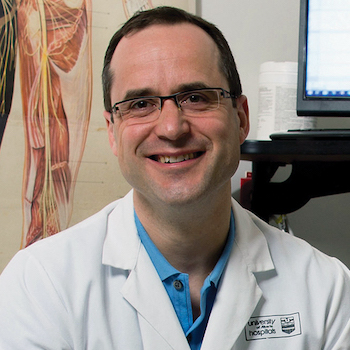
Lawrence Richer, MD is a pediatric neurologist and Professor in Pediatrics, Division of Neurology. He serves as the Vice Dean of Research for the Faculty of Medicine and Dentistry, as well as Associate Dean of Research for the College of Health Sciences. His primary research areas of focus are disorders of the autonomic nervous system and headache disorders. He also leads the Precision Health Signature Area and is committed to advancing platforms in support of drug discovery, genomics, cell therapies and artificial intelligence applied to health.

Xiaoli (Lilly) Pang, MD, PhD is a Professor in the Department of Laboratory Medicine and Pathology, and a molecular virologist in the ProvLab of Alberta Precision Laboratory. Her research is focused on the viral etiology, clinical diagnostic, molecular epidemiology, and environmental virology. Her interests cover a broad range of important human and environmental viruses with a high epidemic potential. She has made significant contributions to Wastewater-Based Epidemiology Surveillance (WBS) on SARS-CoV-2 during the COVID-19 pandemic, provincially and nationally.
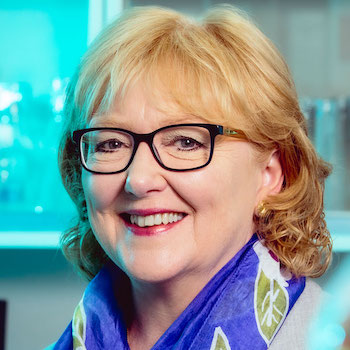
Lori West MD, DPhil, FRSC is Professor of Pediatrics, Surgery, Medical Microbiology/Immunology and Laboratory Medicine/Pathology. She has a long-standing interest and expertise in pediatric heart transplantation and transplant immunology, particularly related to ABO glycobiology. Her pioneering work on crossing ABO-barriers led to a global impact on infant heart transplantation. Dr. West is studying the mechanisms underlying the reported association between SARS-CoV-2 infection and ABO blood groups.

Matthew Croxen, PhD works at the Alberta Precision Laboratories Public Health Laboratory (ProvLab) and oversees and leads the provincial public health genomics and bioinformatics program. He is also an Assistant Professor in the Department of Laboratory Medicine and Pathology at the University of Alberta and a member of the Li Ka Shing Applied Virology Institute (LKSIoV). He is involved in Alberta’s genomic surveillance of SARS-CoV-2 and other viral and bacterial pathogens.
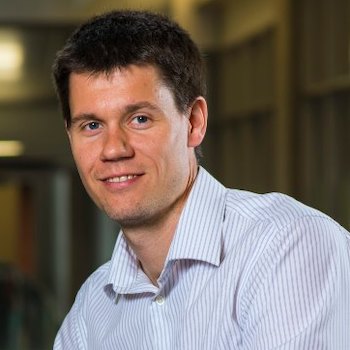
Matthew Macauley, PhD is an Associate Professor in the Department of Chemistry and adjunct in the Department of Medical Microbiology and Immunology. As a Canada Research Chair in Chemical Glycoimmunology and the R.U. Lemieux Chair of Carbohydrate Chemistry, the research program in Dr. Macauley’s lab focuses on the role of cellular carbohydrates (glycans) in controlling immune cells. Using a unique combination of chemical, biochemical and genetic approaches his lab can access challenging questions about the roles of glycans in host-pathogen interactions.
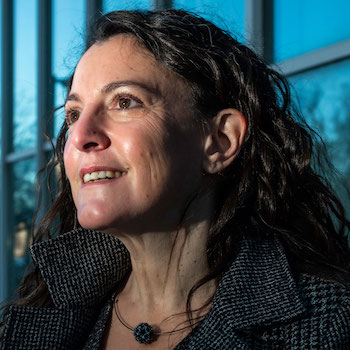
Maya Shmulevitz, PhD is a Canada Research Chair in Molecular Virology and Immunotherapy and professor at the University of Alberta, Department of Medical Microbiology & Immunology. Research in Dr. Shmulevitz’s laboratory is focused on the study of reoviruses as cancer therapies and vaccines. Her laboratory has revealed and exploited molecular details about reoviruses that are essential towards re-engineering this harmless virus into vaccines and therapeutic agents for human health challenges.
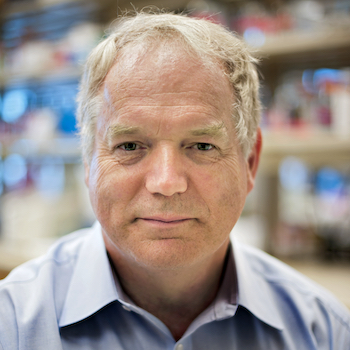
Michael Houghton, PhD Sir Michael Houghton is a Nobel Laureate, Professor in the Department of Medical Microbiology & Immunology and Director of the LKSIoV Applied Virology Institute, which is developing vaccines against HCV, Group A Streptococcus as well as novel drugs for Alzheimer’s. Key technological platforms available for future pandemic preparedness include adjuvanted recombinant protein GMP manufacture, advanced drug development technologies and second generation RNA technology in collaborations with Precision Nanotechnology Inc. in Vancouver, BC.
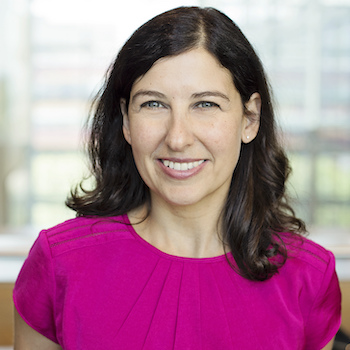
Stephanie Yanow, PhD is a Professor in Global Health in the School of Public Health and Department of Medical Microbiology and Immunology. Her current work focuses on interactions between malaria parasites and the host immune response, particularly during infection in pregnancy. She discovered a novel mechanism of cross-species immunity, with this discovery the foundation for a new malaria vaccine strategy targeting structurally conserved epitopes throughout evolution and elicit antibodies with broadly neutralizing activity across genetically variant pathogens.

Sue Tsai, PhD is a Professor in the Department of Medical Microbiology and Immunology. Tsai is interested in the immunometabolism of adaptive immune cells in metabolic diseases including type 1/2 diabetes diabetes, particularly mechanisms of immune dysregulation during obesity and its link to susceptibility of cardiorespiratory viral infections of obese patients, including the influenza and SARS-CoV-2. Tsai also studies T- and B-cell targeted metabolic adjuvants to improve protective memory responses upon vaccination of preclinical models of diet-induced obesity and diabetes.
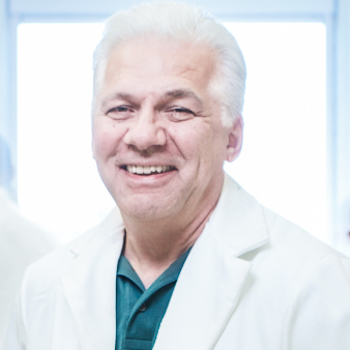
Tom Hobman, PhD is a Professor and cell biologist/virologist who has made pivotal discoveries in our understanding of virus-host interactions and global regulation of gene expression. The current focus of his laboratory is on identification of host cell factors that can be targeted to mitigate infection of endemic and emerging viruses. Currently, he is working with a US pharmaceutical company to test and develop novel therapies for SARS-CoV-2 and other pathogenic RNA viruses.
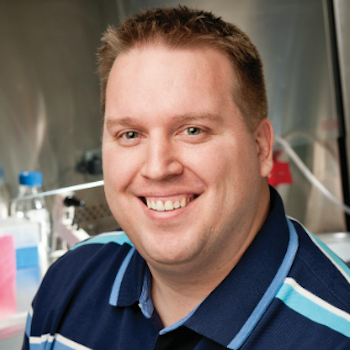
Troy Baldwin, PhD is a Professor in the Department of Medical Microbiology and Immunology and Director of the Immunology Network. He has a longstanding interest in deciphering the signals that regulate T-cell responses. Dr. Baldwin uses sophisticated preclinical models to determine how various proteins positively and negatively regulate T-cell function. He is currently evaluating the ability of genetically engineered viruses to provoke an anti-tumour immune response with the goal of developing both personalized and off-the-shelf cancer vaccines.
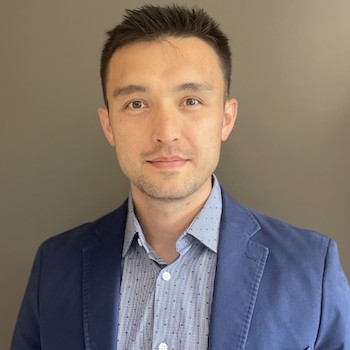 Michael Meanwell, PhD completed his PhD in organic chemistry at Simon Fraser University under with Dr. Robert Britton where he worked on C-H functionalization, organocatalysis, and nucleoside analogue synthesis. Michael continued his training as a Banting Postdoctoral Fellow with Dr. Phil Baran at the Scripps Research Institute working on electrocatalysis and natural product synthesis. Dr. Meanwell began his independent career in July 2022 as the Manley and Marian Johnston Professor in Chemistry. His current research interests include electro- and photo-catalysis, synthesis of nucleoside analogue and natural product antivirals, and fluorine chemistry.
Michael Meanwell, PhD completed his PhD in organic chemistry at Simon Fraser University under with Dr. Robert Britton where he worked on C-H functionalization, organocatalysis, and nucleoside analogue synthesis. Michael continued his training as a Banting Postdoctoral Fellow with Dr. Phil Baran at the Scripps Research Institute working on electrocatalysis and natural product synthesis. Dr. Meanwell began his independent career in July 2022 as the Manley and Marian Johnston Professor in Chemistry. His current research interests include electro- and photo-catalysis, synthesis of nucleoside analogue and natural product antivirals, and fluorine chemistry.
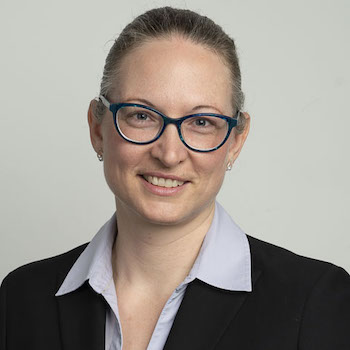 Vanessa Meier-Stephenson MD, PhD is an Infectious Diseases physician and Assistant Professor with the Departments of Medicine and MMI. Her basic science research focus is on the development of small molecule therapeutics for viral hepatitis using biophysics, virology and computational modelling. She is also involved in clinicaltrial work, including Phase I testing of a Group A Strep vaccine.
Vanessa Meier-Stephenson MD, PhD is an Infectious Diseases physician and Assistant Professor with the Departments of Medicine and MMI. Her basic science research focus is on the development of small molecule therapeutics for viral hepatitis using biophysics, virology and computational modelling. She is also involved in clinicaltrial work, including Phase I testing of a Group A Strep vaccine.

